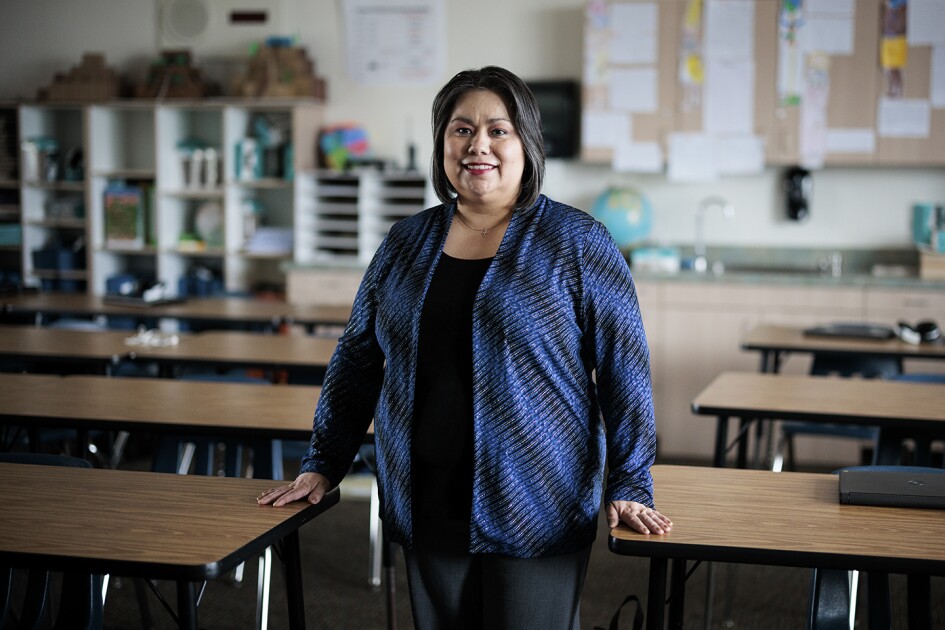When I was first assigned to teach U.S. history nearly a decade ago during my second year as a social studies teacher, my first stop was to a Black-owned bookstore around the corner from where I taught. A month before the school year began, I had decided that I couldn’t use the old course textbook.
It was the same sort of Eurocentric textbook from which I was taught U.S. history as a student, focusing on the accomplishments of the English-speaking Western world while offering little to no acknowledgment of those oppressed by that same population. That textbook hadn’t reflected my history and heritage as a Black man, nor that of the predominately Black and Latinx students I was preparing to teach.
So at LaUnique African American Books and Culture Center, I purchased Africa’s Gift to America, a text written by historian Joel Augustus Rogers.
It was because of that text that my students learned about Crispus Attucks, the African American man who was the first colonist killed by British forces in the massacre that sparked the American Revolution. It was from this book that they came to understand the extent to which enslaved Africans were the foundation for America’s wealth.
While it wasn’t the only book we used in my history class, it helped establish a foundational truth that allowed my students to understand their world in a proper historical context.
There is a racial reckoning happening in America now. The names of racists are being removed from school buildings and colleges, the statues of men who fought to maintain Black enslavement are coming down, and universities and school districts are even severing ties to police departments.
Simply put, students like books where they can see themselves. That's not happening for Black children in your average U.S. history textbook."
Thankfully, the percentage of white people who express support for the Black Lives Matter movement has increased by half in the past four years, to 60 percent in a June poll from the Pew Research Center. That support is even higher among white educators, 83 percent of whom say they support Black Lives Matter. However, is simply saying so enough?
I don’t think that it is. Particularly if you believe current history textbooks are suitable for students to learn from.
According to a recent Education Week survey, when asked, “To what extent if any do the textbooks used in your district, classroom, or school accurately and fully reflect the experiences of people of color?,” 13 percent of educators of color answered “none” while only 5 percent of white respondents said the same thing.
Those survey results suggest a discrepancy between what a white educator means by saying “Black lives matter” and what that actually looks like in practice.
Research demonstrates a relationship between positive racial identity and academic achievement for Black children. Simply put, students like books where they can see themselves. That’s not happening for Black children in your average U.S. history textbook.
Recently, I decided to check how much had changed since I left the history classroom in 2016. I borrowed a 2018 high school U.S. history text that is still in use from my district. I scanned it to see if I could find positive images of Black people or even any mention that explains why Christopher Columbus statues are coming down across the country or why Juneteenth received mainstream attention this year.
There was no mention of Christopher Columbus’ murder and enslavement of Indigenous peoples and there was no mention of Juneteenth. There were a few other glaring omissions. There was no mention that George Washington originally opposed Africans joining the fight for independence. There was no mention that there were hundreds of armed and unarmed rebellions of enslaved persons. There was no mention that the Texas Revolution was prompted by Mexico’s abolishment of slavery. There was no mention of the significance of the Haitian Revolution in the American acquisition of the Louisiana Territory.
Perhaps these omissions were to be expected, considering five of the six authors were white, and 10 of the 11 textbook consultants were white.
And, for good measure, the cover features a picture of Thomas Jefferson, a man who enslaved African peoples, repeatedly forced himself on an enslaved woman he held in bondage, and wrote that Black people “are inferior to whites in the endowments of both body and mind.”
It is not enough for teachers to say that Black lives matter. Teachers must live those words; school districts must live those words as well. But not all teachers believe that Black lives matter, and not all teachers believe that Black lives matter enough to abandon textbooks that devalue Blackness, elevate whiteness, and seek texts that portray American history accurately.
School districts must abandon the use of any text in any content area that fails to reflect Black life in a way that does not affirm Black children. They must abandon texts that fail to portray history accurately and that fail to tell the humanizing stories of the Black experience.
Every white educator who “believes” that Black lives matter should think critically about how Black students will see themselves in curricular materials that devalue or omit the contributions of Black people, that overly emphasize the contributions of white people, and that portray the history of Black life as pitiable.
We don’t need more educators whose valuing of Black lives comes with the condition that history remains whitewashed.








